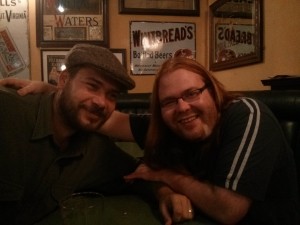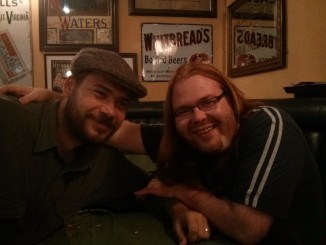Podcast: Play in new window | Download | Embed
Subscribe: RSS
A while back a few of us gathered for what became the first of a ‘successful’ bout of roundtables conducted by a cadre of ‘amazing people’ with differing and ‘unique’ opinions. In that first ‘test’ for the ones that would follow, six of us gathered together to discuss the ‘future of religious studies.’
A few highlights from that recording are the revelation that what one does with a degree in religious studies inevitably leads toward a fine career at Starbucks, that ‘relativity,’ being one step from ‘subjectivity,’ is the ‘post-modernist quagmire of death and destruction that will consume all academic fields if it’s allowed to spread too far,’ and that we ourselves, despite the wishes of many, are not, in fact, the future of religious studies.
After that first attempt came many others and the RSP has blossomed nicely. A few of us finished the degrees that were at that time ‘in-progress’ and moved on—and away—from Edinburgh. This last September we were given the opportunity—thanks to romance—to all be back in town, and arranged a ‘reunion-of-sorts.’ This time, our conversation was a bit less organized, but by no means less interesting. A few of us had begun working on Ph.D. programs, and a few of us had just entered into the early-to-final stages of those begun around the time of the first recording. We sat in the same seats, in the same room, and sipped the same canned cocktails as before. Interestingly, our positions, opinions, and arguments seem both old and new, the result of time working together, learning each other’s personalities, and becoming closer friends and colleagues. Please share in our discussion, comment, discuss on your own and, as always, thanks for listening.

Many thanks to Ethan for penning this prose.















